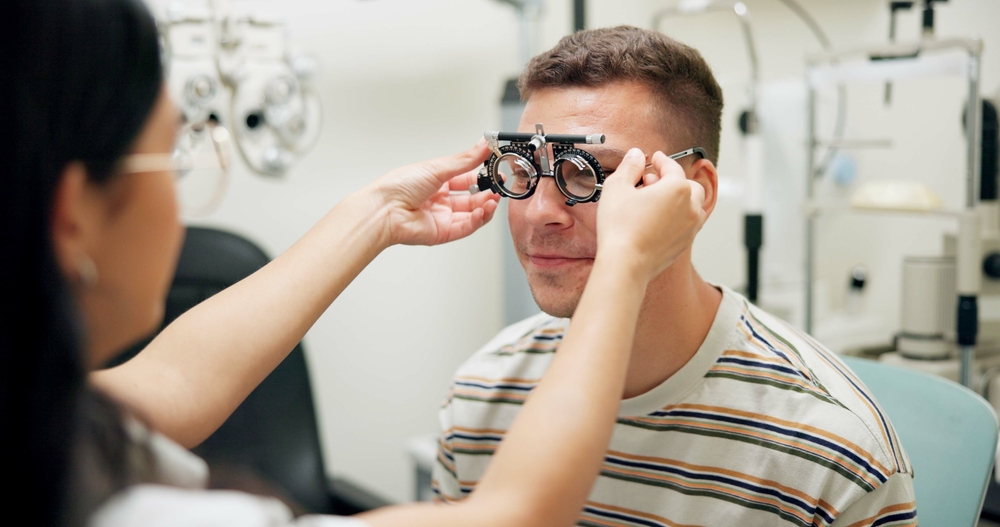
Glaucoma is a complex eye condition that affects millions of people worldwide. It is characterized by increased pressure within the eye, which can ultimately lead to damage to the optic nerve and vision loss if left untreated. Understanding the various factors that contribute to the development of glaucoma is crucial for early detection and effective management of this potentially sight-threatening condition.
Genetics play a significant role in the development of glaucoma. Research has shown that individuals with a family history of glaucoma have a significantly higher risk of developing the condition themselves. In fact, having a first-degree relative (such as a parent or sibling) with glaucoma can increase your risk by up to 10 times.
The genetic factors underlying glaucoma are complex and not yet fully understood. However, scientists have identified several genes that are associated with an increased risk of developing various types of glaucoma. These include genes involved in the regulation of intraocular pressure, the structure and function of the optic nerve, and the overall health of the eye.
The presence of a genetic predisposition does not necessarily mean that an individual will develop glaucoma. Genetic factors can interact with environmental and lifestyle factors, which can either increase or decrease the overall risk.
In addition to genetics, there are several other factors that can contribute to the development of glaucoma. Understanding these risk factors can help you and your healthcare provider develop a personalized plan for monitoring and managing your eye health.
• Age: The risk of glaucoma increases with age, with the condition becoming more common in individuals over the age of 60.
• Race: Certain racial and ethnic groups, such as African Americans and Hispanics, have a higher risk of developing glaucoma.
• Eye Anatomy: Individuals with certain eye structures, such as a narrow angle between the iris and cornea, are at an increased risk of developing angle-closure glaucoma.
• Medical Conditions: Conditions like diabetes, high blood pressure, and heart disease can increase the risk of glaucoma.
• Eye Injuries: Trauma or injury to the eye can also contribute to the development of glaucoma.
While genetics and certain medical conditions play a significant role in the development of glaucoma, your lifestyle choices can also impact your risk. Understanding these factors can empower you to take proactive steps to protect your vision.
• Diet: A diet rich in antioxidants and nutrients that support eye health, such as omega-3 fatty acids, lutein, and zeaxanthin, may help reduce the risk of glaucoma.
• Exercise: Regular physical activity has been shown to lower intraocular pressure and may help prevent the onset of glaucoma.
• Smoking: Smoking is a known risk factor for glaucoma, as it can increase inflammation and damage the optic nerve.
• Stress Management: Chronic stress can contribute to increased eye pressure and may exacerbate glaucoma symptoms. Practicing stress-reduction techniques, such as meditation or mindfulness, may be beneficial.
Regular eye exams are crucial for the early detection and effective management of glaucoma. During these examinations, your optometrist will measure your intraocular pressure, assess the health of your optic nerve, and perform other tests to evaluate your risk of developing glaucoma.
Early detection is key, as glaucoma can often progress silently without noticeable symptoms in the early stages. By catching the condition early, your healthcare provider can implement appropriate treatment strategies, such as medication, laser therapy, or surgery, to help preserve your vision and prevent further damage to the optic nerve.
Even if you have been diagnosed with glaucoma, regular monitoring is essential to ensure that your treatment plan is effective and to make any necessary adjustments. Your eye doctor may recommend more frequent check-ups, depending on the severity of your condition and your individual risk factors.
Glaucoma is a complex eye condition with a strong genetic component, but there are also numerous other risk factors to consider. By understanding your personal risk profile, you can take proactive steps to protect your vision and maintain healthy eyes. Regular eye exams are crucial for the early detection and effective management of glaucoma, as the condition can progress silently in its early stages.
If you're concerned about your risk of glaucoma or are due for a comprehensive eye exam, contact Berris Optical and take the first step towards safeguarding your sight. Visit our office in Rocky River, Ohio, or call (440) 571-7100 to book an appointment today.